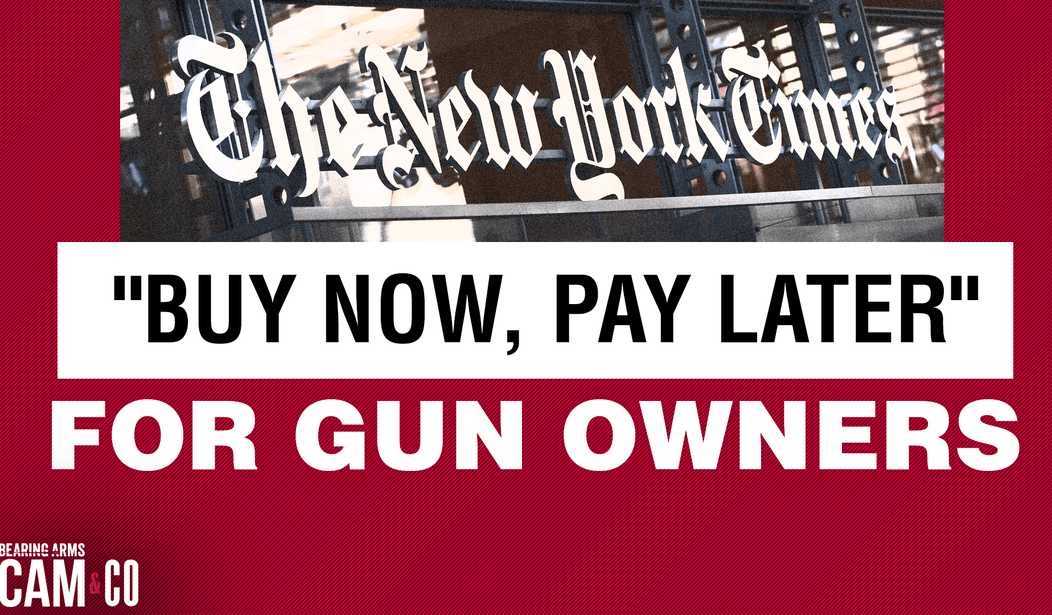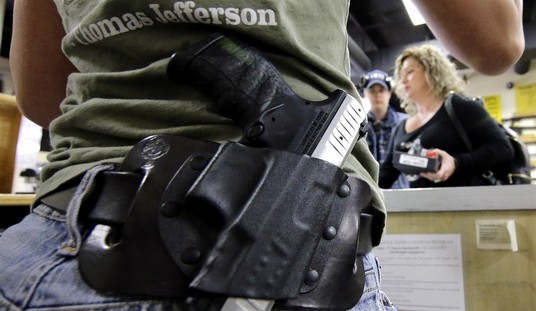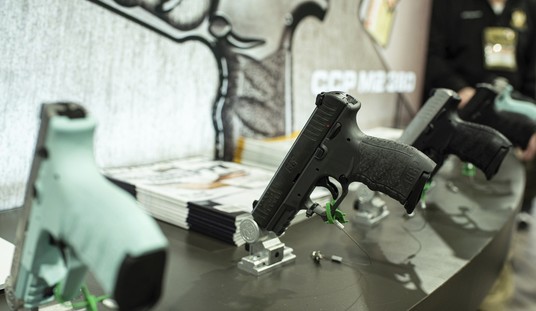The New York Times (with an assist from the gun control group Giffords) is hinting that gun owners shouldn’t be allowed to purchase firearms or gun parts using “buy now, pay later” options by highlighting the case of a California man who was the victim of identity theft when crooks used his information to purchase thousands of dollars of parts and accessories.
What happened to Seung Song absolutely sucks, but the real issue here is that someone stole his identify, not the fact that people can purchase firearms or accessories on a payment plan.
In late summer, a delivery service dropped off two packages containing $5,000 in gun parts and accessories at a house in Chino Hills, a community in Southern California.
The packages, containing parts for a Glock handgun, an AR-15-style rifle and other weapons, had been shipped from Primary Arms, a gun seller in Houston. The components were purchased in August using an installment payment plan provided by Credova Financial, a company that specializes in “buy now, pay later” financing options for firearm purchases.
The deliveries were addressed to Seung Song.
Except, Mr. Song said, he never ordered the mix of gun parts, and he never got any delivery. A recently retired engineer, Mr. Song said he had found out about the purchase only when notified in October that a debt for $5,000 had been added to his credit report. When he reviewed the report, he saw that Monterey Financial Services, a debt collector used by Credova, had reported that the debt was overdue.
“I never heard of any of these companies,” said Mr. Song, 52. “I am not a gun owner.”
Maybe there’s an argument to be made that identity thieves can easily evade the steps companies have put in place to prevent fraud, or that the punishment for using someone’s identify to rack up thousands of dollars in fraudulent purchases needs to be increased. But the designed gun control “expert” the Times called upon says the real issue is that gun parts are being sold at all.
But gun control advocates said large caches of gun parts could be used to construct privately made firearms — sometimes called ghost guns because they were hard for law enforcement to trace.
Adam Skaggs, chief counsel and policy director for Giffords Law Center, an advocacy group for the prevention of gun violence, who reviewed the Credova contract, said all of the gun parts on the list could be legally shipped to a person’s home. Someone with the right knowledge, Mr. Skaggs said, could use those parts to build a functional gun as long as the person had access to other critical gun components — such as a nearly finished frame or lower receiver.
And there’s nothing illegal about that, at least as long as the person purchasing those parts isn’t using someone else’s identity (and credit) to do so.
While the New York Times story itself doesn’t advocate for an end to “buy now, pay later” for firearms or gun parts, don’t be surprised to see the paper’s editorial page make that demand in the next few days. Gun control activists and officials are doing all they can to price Americans out of their Second Amendment rights, from the police department in LaVerne, California charging over $1,000 to apply for a carry permit to attempts by Democrats on Capitol Hill to impose a 1000% excise tax on the purchase of a modern sporting rifle. Trying to take away the ability of Americans to purchase firearms or accessories on credit is just another step in that direction, and even if Democrats can’t impose that ban in Washington, D.C. right now they may try to enact it into law in states like California and New York in the not-too-distant future. Gun owners need to be vigilant; not just for legislation that would ban the possession of commonly-owned firearms or place draconian limits on where responsible gun owners can carry in self-defense, but for measures designed to block us from lawfully acquiring a firearm in the first place as well.









Join the conversation as a VIP Member